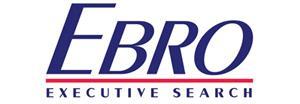The evolution of HR ties into its increasing influence on the growth of an organisation and while the term “HR business partner” is loosely used these days, one needs to understand the purpose of this function to be successful.
Most HR directors take care of a spectrum of activities, including payroll, recruitment, compensation and benefits, training and development, and employee relations. The “business partner” function comes into play when an organisation has grown enough to start focusing on strategic projects – such as organisational behaviour and development.
HR people need to adapt accordingly. On the surface it may seem like HR now needs to troubleshoot all internal problems. It means taking a proactive approach and using all existing skills, experience and knowledge.
Attitudes and mindsets also need to change – the role now requires a strong dose of emotional intelligence.
HR business partnering requires a generalist background because business leaders will approach HR to provide sound advice on various issues.
One such issue is leadership development. A succession plan for every employee must be discussed and shared. Business partnering ties into the delicate task of finding gaps in the firm’s people-management strategy and ensuring every employee is engaged.
Working as one of the building blocks in the business requires attention to the smallest detail – in particular cultural sensitivities. For example, many organisations in Hong Kong want to adapt global HR policies for the Asian market. Global firms in Hong Kong are looking to local talent when succession planning and HR must function strategically to build platforms that grow domestic teams.
Knowing the local language is an advantage, as is keeping open communication channels, which establishes rapport with employees that will aid efforts to drive organisational change and strategy.
This article appeared in the Classified Post print edition as Partnering up.






